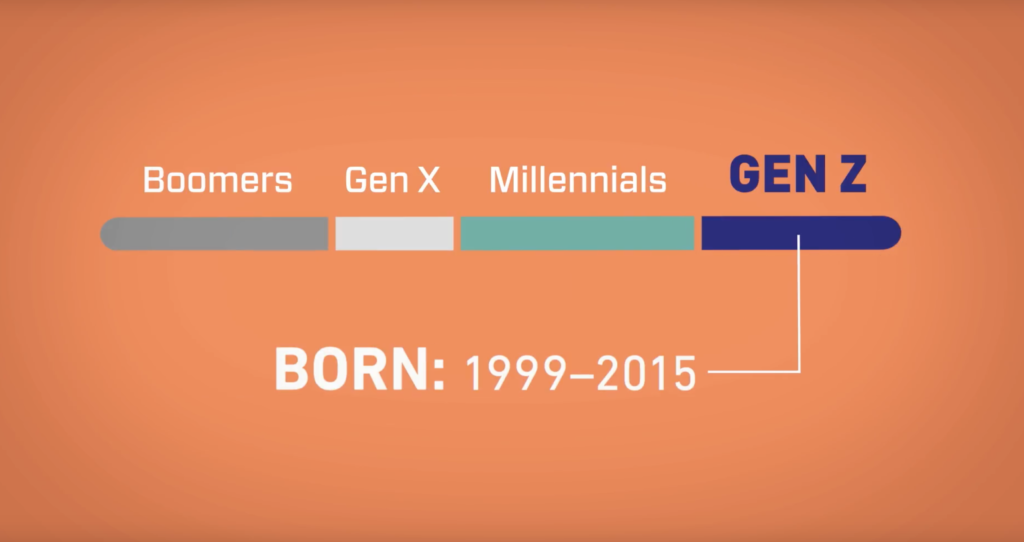Over the past year, Impact 360 Institute has worked closely with Barna on a landmark study of Gen Z. Impact 360 works with the next generation—with teenagers and college students—to equip them in biblical worldview and leadership. This new study is a snapshot of the ways Gen Z sees the world and the culture. Who is Gen Z? What are their assumptions and values? What is shaping them? How can we better equip them, reach them and help them follow Jesus with confidence in this culture?
Download the Gen Z Infographic
According to Roxanne Stone, Barna’s Editor in Chief, “America has been wringing its hands over Millennials for a while now. We’ve called them narcissists. We’ve worried about their employment rates. We’ve wondered why they’re taking so long to get married. We’ve noticed the alarming rates at which they’re dropping out of church. In other words, talking about Millennials has become something of an American pastime. But there is a new generation coming into adulthood. The first wave of Gen Z is entering college this year. Who are they? Will they carry on the Millennial trends we’ve been studying for decades? How are they different? What is their relationship to faith, to parents, to institutions? How has culture and society shaped them?
“Will Gen Z carry on the Millennial trends we’ve been studying for decades?”
First, why are we calling them Gen Z? Well, you may remember that Millennials were originally called Gen Y because they were born after Gen X, before they became Millennials. The same is probably true for Gen Z. Eventually, they’ll get their own name, once the particularities of their generation become clear. You may hear some people already referring to them as the ‘iGen’ or ‘digital natives’ because of their relationship with technology. Others called them the ‘homeland generation’ because most of them were born after 9/11. You may also hear ‘centennials’ or ‘founders’—but for now, the most widely accepted title is Gen Z.
“Gen Z was born between 1999 and 2015, making the oldest of them 18 this year. Most of them are in their teens and childhood years. Gen Z is the second largest generation alive today. In the U.S. there are 69 million of them, compared to 66 million Millennials, 55 million Gen Xers and 76 million Boomers. The parents of Gen Z are Gen X and Millennials. They are most ethnically diverse generation alive today, and they have, for better and worse, grown up with technology at their fingertips. The smartphone was invented before most of them were even born.
These are the basic facts about Gen Z, but we wanted to go deeper. We wanted to know how this new generation thinks, how they perceive the world and themselves. So we went straight to the source. We interviewed 13– to 18-year-olds in a multi-pronged, multi-month survey. First, the qualitative stage. We interviewed individual 13– to 18-year-olds about their lives, beliefs, activities. Then we took the results from those interviews and developed a questionnaire for a nationally representative sample of 1,490 13– to 18-year-olds. We asked them about their faith, home lives, friendships, social activities, media and technology habits, goals for life, political beliefs, even their ideas on gender.
Of course, generations never take shape in a vacuum, and Gen Z is definitely still taking shape. Most of them live at home with their parents and are heavily influenced by their teachers and mentors. So we also surveyed parents of Gen Z and youth pastors who work with Gen Z. We wanted to find out how their influences have affected and continue to affect teens. Taken together, this is a comprehensive, groundbreaking study on the least-researched generation thus far. Every generation matters to the life of the Church, including its youngest. We believe we have much to learn from and about Gen Z. The research in this study is an important first step in serving and equipping this next generation.”
Here’s what you need to know: The research will be unveiled at a free public event on January 23rd in Atlanta, Georgia, accompanied by a national webcast for those who cannot attend in person. We are excited to announce that Impact 360 Institute’s Director of Cultural Engagement, Jonathan Morrow, will be unpacking the study findings alongside Barna president David Kinnaman and a team of other dynamic speakers.
Understanding Gen Z is critical if we want to serve, lead, influence and equip this next generation. This research will be impactful and valuable for pastors, youth workers, parents, educators and anyone who cares about the next, next generation.
“Understanding Gen Z is critical if we want to serve, lead, influence and equip this next generation.”
